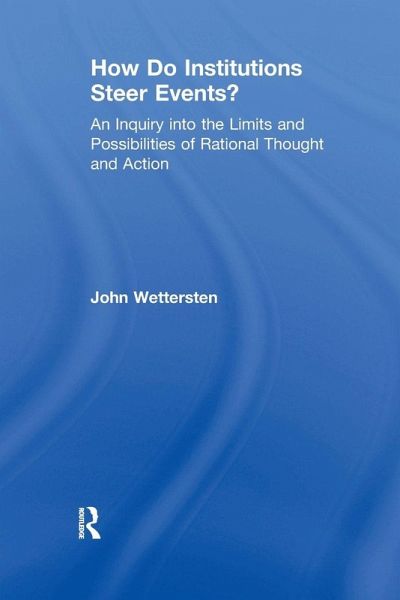
How Do Institutions Steer Events?
An Inquiry into the Limits and Possibilities of Rational Thought and Action
Versandkostenfrei!
Versandfertig in 1-2 Wochen
70,99 €
inkl. MwSt.
Weitere Ausgaben:

PAYBACK Punkte
35 °P sammeln!
Analysing the theories of Weber and Popper, Wettersten shows that Popper made considerable progress in the theory of rationality, but ultimately stayed too close to the ideas of Hayek, he explains how this dilemma leads to difficulties in economics, anthropology, sociology, ethics and political theory, and constructs an alternative theory that rationality is critical problem-solving in institutional contexts.




